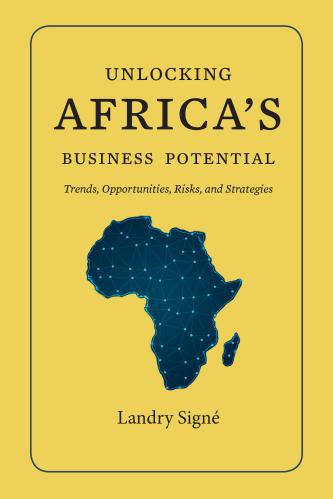In December, Paige Alexander—a good friend who was recently installed as CEO of The Carter Center—commented in an email exchange “awaiting your piece on what makes a good NGO better for 2021.” My answer, in part, has just been released in Bill Novelli’s “Good Business.”
What does a book about business have to do with NGOs and the public good? Everything, as the book is about social problem-solving. It’s about “Doing Well by Doing Good.” It serves as a brief for advancing the public good not just for well-meaning businesses, but for civil society, government, and even academia.
Good Business is a “how-to” for social entrepreneurs built around the story of Bill Novelli’s professional life, which progressed from marketing for a multinational, to a Madison Avenue ad firm, to government, all of which led to a realization that business marketing skills could be put to use for the common good and to pioneering the concept of social marketing with the creation of Porter Novelli. Always looking for the next challenge, that social marketing firm was followed by leading the campaign against big tobacco, chief operating officer at CARE, CEO of AARP, to now Georgetown University’s Business for Impact.
In dissecting his diverse professional roles—for-profit, nonprofit, government, academia—the book is a guide for social entrepreneurship, social advocacy, public policy advocacy, organizational leadership, corporate shared value, and nonprofit board service. It is aimed at people from all walks of life who want to make a difference, both domestically here in the United States and internationally. I am sure most importantly for Bill, his prime target is the next generation of change-makers, hoping the lessons relayed in the book help them learn from the successes and mistakes of their predecessors.
While many of Bill’s principles for how to achieve impact sound self-evident and accepted practice today, they weren’t 30-40 years ago when he was pioneering social advocacy and learning through success and failure. Many of us need a reminder of what we have learned through our own trial and error, which is especially potent when explained in the personal experience of a pioneer in the field.
Bill identifies the four pillars of public policy advocacy as communications, research, coalitions and grassroots mobilization, and legal assistance. I would add to that timing—knowing when the timing is right to strike on your issue, when the political environment/forces are aligned, which too often you cannot anticipate so you always need to be prepared to act.
His mantra is “talk—fight—win.” It is basically the approach a small coalition (Basic Education Coalition, Brookings Center for Universal Education, and Oxfam) followed in promoting basic education in foreign assistance programs in the early 2000s, employing a strategy of solid research with working policymakers at the World Bank, the U.S. Agency for International Development, and Congress, but ready to call them out when commitments were not met. He uses real examples to make the case of the importance of recruiting other organizations as partners, especially “strange bedfellow” alliances (a concept made current by the U.S. Global Leadership Coalition), and of having a great team. He warns against overcentralization of decisionmaking.
The book goes into instructive detail in dealing with the Hill in the challenges Bill faced in advancing tobacco control legislation. His story brings to life important messages in the book, all of which we in some way know but too often fail to follow. Some of these are the following. There is no perfect legislation. Recruit and nurture allies; keep allies informed and maintain trust. Engage critics in search of common ground. Offer solutions, not just critiques. Public policy is powerful. Winning a battle is not winning the war. Aim high and strive hard but with humility and ethics. Combine statistics with strategy.
My version of the latter is that the path to winning over policy officials is through the heart. First comes a personal or public interest story that relates to their particular interest or perspective and so can capture their attention, upon which they will listen to the data and rationale.
I would add several more lessons. First, policy decisions in Washington are never final—as starkly demonstrated by President Biden’s 17 day-one executive orders overturning Trump’s actions. Second, innovation comes from the private sector and civil society, seldom from government; public officials, in particular elected officials, seldom lead the bandwagon but readily jump to the front once it is sufficiently populated. Third, having policymakers in key positions is critical to securing action on your issue, but they will act only once you demonstrate they are not alone and have sufficient support.
The title, “Good Business,” comes from corporations that combine profit with purpose and track a tipple bottom line—people, planet, profit. The book presents stories of joining profit with purpose, both domestically and internationally. It also presents the pros and cons of corporate social responsibility. While those corporations and examples do not represent the majority of the business world, they do represent the trend, as evidenced by the percentage of S&P 500 companies issuing responsibility reports climbing from 20 percent in 2011 to 90 percent in 2019, with 51 percent using Global Reporting Initiative (GRI) standards.
If that is not enough, the book is replete with recommendations on how to deal with policy issues that Bill has addressed in his various incarnations and concludes with policy prescriptions for the Biden Administration on climate, inequality, health, and the deficit.
The book is a call to action for all ages, but particularly for the next generation, to use its talents to make a difference. While the title is Good Business, the book is broader—it’s about “How to Make a Difference” and “Having Impact.”
P.S. Other guides I would recommend to Paige and development activists are:
- “Lean Impact” by Ann Mei Chang
- “The Business of Changing the World” by Raj Kumar
- “Power Switch” by Paul O’Brien
- “To Teach A Women to Fish” – Ritu Sharma
The Brookings Institution is committed to quality, independence, and impact.
We are supported by a diverse array of funders. In line with our values and policies, each Brookings publication represents the sole views of its author(s).








Commentary
Doing good by doing well
February 12, 2021